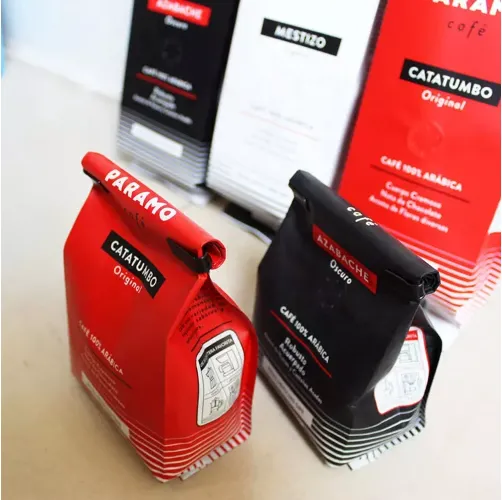- Afrikaans
- Albanian
- Amharic
- Arabic
- Armenian
- Azerbaijani
- Basque
- Belarusian
- Bengali
- Bosnian
- Bulgarian
- Catalan
- Cebuano
- chinese_simplified
- chinese_traditional
- Corsican
- Croatian
- Czech
- Danish
- Dutch
- English
- Esperanto
- Estonian
- Finnish
- French
- Frisian
- Galician
- Georgian
- German
- Greek
- Gujarati
- haitian_creole
- hausa
- hawaiian
- Hebrew
- Hindi
- Miao
- Hungarian
- Icelandic
- igbo
- Indonesian
- irish
- Italian
- Japanese
- Javanese
- Kannada
- kazakh
- Khmer
- Rwandese
- Korean
- Kurdish
- Kyrgyz
- Lao
- Latin
- Latvian
- Lithuanian
- Luxembourgish
- Macedonian
- Malgashi
- Malay
- Malayalam
- Maltese
- Maori
- Marathi
- Mongolian
- Myanmar
- Nepali
- Norwegian
- Norwegian
- Occitan
- Pashto
- Persian
- Polish
- Portuguese
- Punjabi
- Romanian
- Russian
- Samoan
- scottish-gaelic
- Serbian
- Sesotho
- Shona
- Sindhi
- Sinhala
- Slovak
- Slovenian
- Somali
- Spanish
- Sundanese
- Swahili
- Swedish
- Tagalog
- Tajik
- Tamil
- Tatar
- Telugu
- Thai
- Turkish
- Turkmen
- Ukrainian
- Urdu
- Uighur
- Uzbek
- Vietnamese
- Welsh
- Bantu
- Yiddish
- Yoruba
- Zulu
Versatile and Eco-Friendly Plastic Pouches for Every Packaging Need
The Versatility and Sustainability of Plastic Pouches
In recent years, plastic pouches have emerged as a popular packaging solution across various industries, ranging from food and beverages to personal care and cleaning products. These flexible containers offer numerous advantages over traditional rigid packaging, such as bottles and jars. With their lightweight design, cost-effectiveness, and versatility, plastic pouches have revolutionized the way products are packaged and consumed.
One of the primary benefits of plastic pouches is their flexibility. They can be produced in a variety of shapes and sizes, allowing brands to create unique and eye-catching packaging that stands out on shelves. Pouches can be made with spouts for easy pouring, resealable zippers for convenience, or sophisticated designs that enhance the customer experience. This adaptability also enables companies to reduce packaging waste, as pouches often require less material to produce than their rigid counterparts.
In addition to their functional advantages, plastic pouches also play a crucial role in sustainability efforts
. The environmental impact of packaging waste has become a growing concern, prompting businesses to seek out eco-friendly alternatives. Many manufacturers are now producing pouches using recyclable or biodegradable materials, aimed at minimizing the ecological footprint associated with traditional plastic. Brands that invest in sustainable packaging solutions can not only appeal to environmentally-conscious consumers but also contribute to a circular economy by reducing waste and encouraging recycling.Plastic pouches are particularly advantageous in the food and beverage industry. They offer excellent barrier properties, which help preserve the freshness and quality of products for longer periods. This is especially important for perishable items like snacks, sauces, and soups, where maintaining flavor and shelf life is paramount. Moreover, the lightweight nature of pouches reduces shipping costs and carbon emissions associated with transportation. As consumers increasingly seek convenience and portability, pouches continue to gain popularity for single-serve portions and on-the-go snacks.
plastic pouch

The pharmaceutical and personal care sectors have also begun to capitalize on the benefits of plastic pouches. Many over-the-counter medications, dietary supplements, and liquid personal care products are now packaged in flexible pouches. These not only provide a tamper-proof seal but also allow for precision dispensing, reducing waste and ensuring consumers receive the correct dosage. Innovative designs, such as travel-sized pouches, cater to consumers looking for hassle-free solutions during their journeys.
Despite the numerous advantages, it is essential to acknowledge the challenges posed by plastic waste. While efforts are being made to produce recyclable and biodegradable pouches, not all consumers are aware of the correct disposal methods. This underscores the need for businesses to educate their customers about recycling programs and sustainable practices associated with their products. By encouraging responsible mindful consumption, brands can play a significant role in reducing the environmental impact of their packaging.
As technology continues to advance, the future of plastic pouches looks promising. Research into alternative materials and better recycling technologies is ongoing, paving the way for even more sustainable solutions. Innovations like plant-based plastics and intelligent packaging that can convey information about the product’s freshness are just some examples of how the industry is evolving.
In conclusion, plastic pouches represent a versatile and practical solution for packaging needs across multiple industries. Their lightweight, flexible design and potential for sustainable materials make them an appealing option for both manufacturers and consumers. As the focus on environmental responsibility grows, the industry must continue to innovate and educate, ensuring that the benefits of plastic pouches can be realized without compromising the health of our planet. Embracing these changes not only enhances product offerings but also contributes to a more sustainable and responsible future in packaging.













